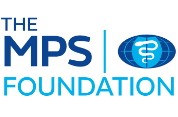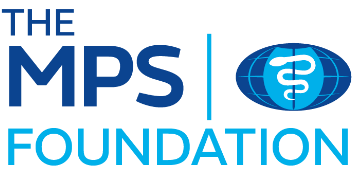Project title
Taking mediation from principle to practice
Country
South Africa
Background
Informed consent is a cornerstone of patient-centred care, ensuring individuals understand their treatment options, risks, and benefits. However, conventional methods – such as verbal explanations and written leaflets – often result in patients retaining only a small amount of the information provided. Studies have shown that a multimedia approach significantly improves information retention compared to traditional methods.
Moreover, conventional methods may not fully address the needs of patients with varying levels of health literacy and language proficiency, creating further barriers to effective communication.
Cataract surgery, while one of the most common and relatively safe NHS procedures, carries a high medicolegal burden due to its sheer volume. Many complaints and litigations arise from complications that are routinely covered during the consent process, highlighting a potential gap in how information is delivered and retained. Addressing this gap is essential to improve patient understanding, reduce anxiety, and minimise complaints.
Medical negligence litigation in South Africa has increased exponentially in recent years, in line with worldwide trends. In South Africa, the rising costs of medical malpractice claims are spiralling out of control, with almost half of some provinces’ healthcare budgets consumed by medicolegal expenses. Medical negligence litigation is stressful to all parties involved – it’s costly and time consuming. The adversarial nature of litigation escalates conflict and is an inefficient dispute resolution mechanism in medicolegal matters. Conversely, mediation offers cost and time efficient resolutions in a non-adversarial, conciliatory environment based on open and honest communication. These factors should promote the use of mediation as the preferred dispute resolution mechanism, but in practice, that is not the case. We believe that the inclusion of a clause providing for a mandatory pre-mediation meeting to explain the process and advantages of mediation as part of the pre-procedural consent process is a prerequisite to achieving early mediation.
Summary
The project intends to take mediation from principle to practice in South Africa. The nature of litigation, especially in medicolegal matters is prohibitive and destructive. Mediation offers a dispute resolution strategy that provides collaborative restitution for a fraction of the cost and time. This project consists of three sub studies to understand the driving motivation for the medical and legal fraternity and healthcare institutions’ preferred conflict resolution strategy.
This research will specifically determine the level of inclusion of mandatory pre-mediation as a primary means of medicolegal conflict resolution in South Africa. Pre-mediation sessions offer the platform to pursue mediation as an alternative to litigation.
Outcome
The ultimate outcome we envisage is a general acceptance of mediation as the first line of dispute resolution in the private and public healthcare setting in South Africa among healthcare providers, their insurers, lawyers, and their patients. This should translate into a more timely and effective way to de-escalate disputes and conflicts. The practical realisation of all the potential benefits of the mediation process would be expected as outcomes of this research project.

